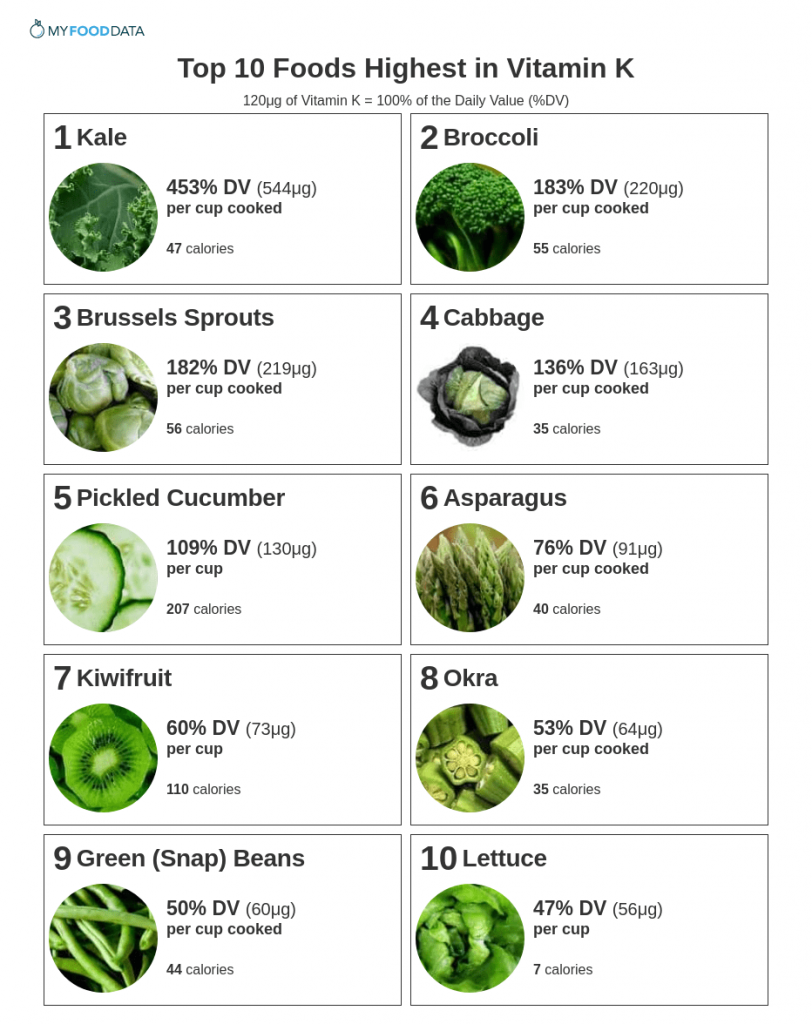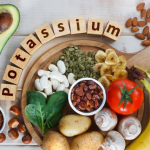Vitamin K – The Superstar
What is Vitamin K?
Vitamin K is a fat-soluble vitamin that plays a crucial role in blood clotting and bone bone health. It is also helps the your cardiovascular, brain, liver, and kidney health.
- Vitamin K1 (phylloquinone): Assists in blood clotting. The most common form of vitamin K is found in plant-based foods such as green leafy vegetables such as spinach, kale, and broccoli.
- Vitamin K2 (menaquinones): Assists in bone and cardiovascular health. Vitamin K2 can be found in animal-based foods, such as meat, dairy products, and fermented foods like cheese and natto. Vitamin K2 is subdivided into sub types, ranging from MK-4 to MK-13.

Why should I take Vitamin K?
- Blood clotting: Prevent excessive bleeding and promote proper wound healing, helping to maintain overall vascular health.
- Bone health: Adequate vitamin K intake is associated with a reduced risk of bone fractures and osteoporosis.
- Cardiovascular health: Prevents calcium deposits in blood vessels and soft tissues to maintain arterial flexibility and reduces the risk of cardiovascular diseases, such as hardening of the arteries.
- Anti-inflammatory properties: Studies suggest that vitamin K may have anti-inflammatory properties, potentially reducing the risk of chronic inflammatory diseases.
- Cognitive health: Emerging research indicates that vitamin K may play a role in maintaining cognitive function, particularly in older adults.
- Liver function: The liver indirectly benefits by ensuring that the liver can produce factors for blood clotting and overall vascular health. Healthy liver helps the metabolism of other fat-soluble vitamins and detoxification.
- Kidney function: The indirect benefits for kidney health include preventing calcium deposition in blood vessels and soft tissues ensuring the kidney does its job of filtering waste products and maintaining electrolyte balance.
What is the recommended amount daily?
Depends the National Institute of health (NIH) recommends:
Children / Adolescents:
- 1-3 years: 30 mcg per day
- 4-8 years: 55 mcg per day
- 9-13 years: 60 mcg per day
- 14-18 years: 75 mcg per day
Adults:
- Adult Males: 120 mcg per day
- Adult Females: 90 mcg per day
Note: Tolerable intake levels (ULs) for vitamins can pose health risks when taken in excess. There have been no reported adverse effects from vitamin K excess in any amount from food or supplements in the general population.
Danger Zone – Warfarin and Vitamin K
Consult your doctor and health care team first. Know Warfarin is prescribed to help prevent blood clots or prohibit their growth. Because vitamin K helps your blood to clot, it works against warfarin.
Power Couple – Vitamin D and Vitamin K for Strong Bones
- Synergistic effect: Vitamin D and vitamin K work together to maintain calcium balance in the body.
- Calcium absorption: Vitamin D promotes the absorption of calcium from the intestines into the bloodstream.
- Calcium regulation: Vitamin K reduces the deposition of calcium in blood vessels and soft tissues, thus preventing calcification and maintaining cardiovascular health.
- Bone health: Reduces the risk of osteoporosis. Both vitamins are crucial for maintaining bone health. Vitamin D ensures adequate calcium levels in the blood, while vitamin K ensures that calcium is properly used for optimal bone mineralization.

Where do I get supplemental Vitamin K?
Can I trust my vitamin is what it says it is?
Vitamin K supplements – USP Verified Brands
- NatureMade
ConsumerLabs.org Tested Brands – Vitamin K
- Swanson
- Vitacost
- Doctor’s Best
- Nordic Naturals
- Carlson
- Healthy Origins
- Garden of Life
- Kirkland (Costco)
- Nature Made
- Thorne
- Pure Encapsulations
- Natrol






 Next Post
Next Post